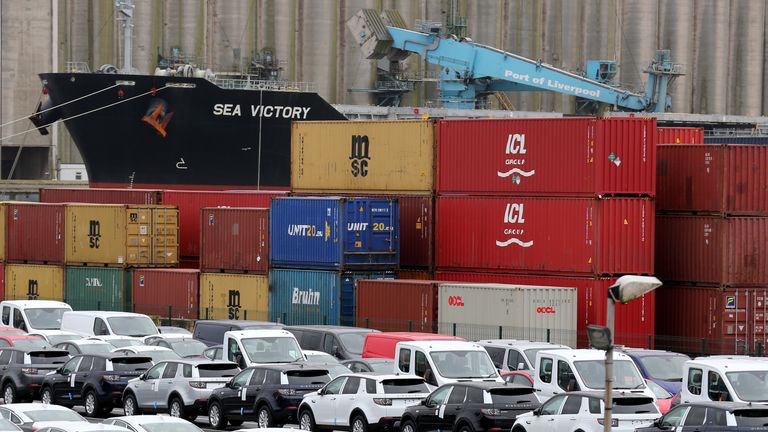The Chequers challenge: Mixing business and politics
In the past week, Airbus, BMW and JLR all expressed misgivings about the way in which Brexit negotiations are being handled.
Friday 6 July 2018 08:05, UK
Chequers is an impressive, handsome house, 550 years old and set on the edge of the Chilterns.
It is a peaceful retreat that will soon reverberate to the sound of debate, argument, and ticking clocks.
When Theresa May welcomes her cabinet to Chequers, she will invite them to resolve the irresolvable - the Gordian Knot of how Britain can negotiate a Brexit agreement that satisfies everyone.
Much of the debate has focused upon the warring factions of her own party, and upon the Westminster theatrics and arithmetic.
And for much of this time, Britain's business leaders have chosen to bide their time, to sit and wait. Until now.
In the past week, Airbus, BMW and JLR have all expressed profound misgivings about the way in which negotiations are being handled.
And as one company feels emboldened to speak out, so others have followed.
The common complaint is that politicians simply don't understand the basic requirements of business, and that, as the name may suggest, politicians focus upon politics.
A deal that comes at the last minute, it is feared, may satisfy a need for political brinkmanship but could be destructive for British business regardless of its terms.
This is not simply a refrain from the press offices of international corporations.
Just down the road from Chequers, I visited Ipro Solutions, a small manufacturing company that assembles a range of products.
The commercial director is David Haley, a man with an easy smile, but a furrowed brow.
"We are getting frustrated at the lack of information from the government," he told me.
"We are geared up here to run a lean manufacturing organisation, with a lean, efficient supply chain, but we have no clarity about what's going to happen.
"We've had discussions with suppliers and customers and we're all unclear about what the final drop-dead dates are - about when we have to act.
"With a supply chain, you have to plan and prepare but at the moment, we don't know what we're preparing for."
Mr Haley's biggest fear is logistics, about the delays to goods as they are imported and exported.
His contingency plan is to pay for more warehouse space which will, in turn, use up the company's cash reserve.
The government, claims Mr Haley, "has no real understanding of what affects a manufacturer like us".
It's a familiar refrain. A couple of villages away from Chequers, I find builders from the construction firm Stephen Russell working in the midday sun.
It's a high-end building project, but finding the tradesmen is getting harder - plenty have returned to Eastern Europe.
Managing director Steve Rockingham worries about labour, but also about trade barriers - he points to a pile of oak imported from France.
"With no trade agreement, we don't know how imports like that will pan out," he says.
"It would be really good for the whole industry to know what's going to happen because at the moment there is a huge uncertainty about what will happen.
"We've seen a decline in enquiries, which we are sure is down to the uncertainty.
"Nobody wants to make a long-term commitment because they don't know what is going on."
From business after business, it is the same message - a demand for more clarity, more guidance.
There are those who campaigned first to remain, and then who lobbied for a "soft" deal, but who now say they would accept a hard Brexit, as long as it came with some forewarning.
For the moment, they have none of that.
In Oxfordshire, at EMS Physio, they make physiotherapy equipment to help people in pain.
Managing director James Greenham talks like a man with a constant headache.
"A hard Brexit is better than not knowing anything," he told me.
"At the moment we have no idea how to plan for the future. Our European customers ask about us about the likely effect, but the truth is that I don't know what will happen beyond March,
"Politicians and businessmen are two worlds that don't mix. We need clarity, and we need time to plan.
"We need an agreement by October, in order to get things in place. But politicians will want to wait until the 11th hour."







